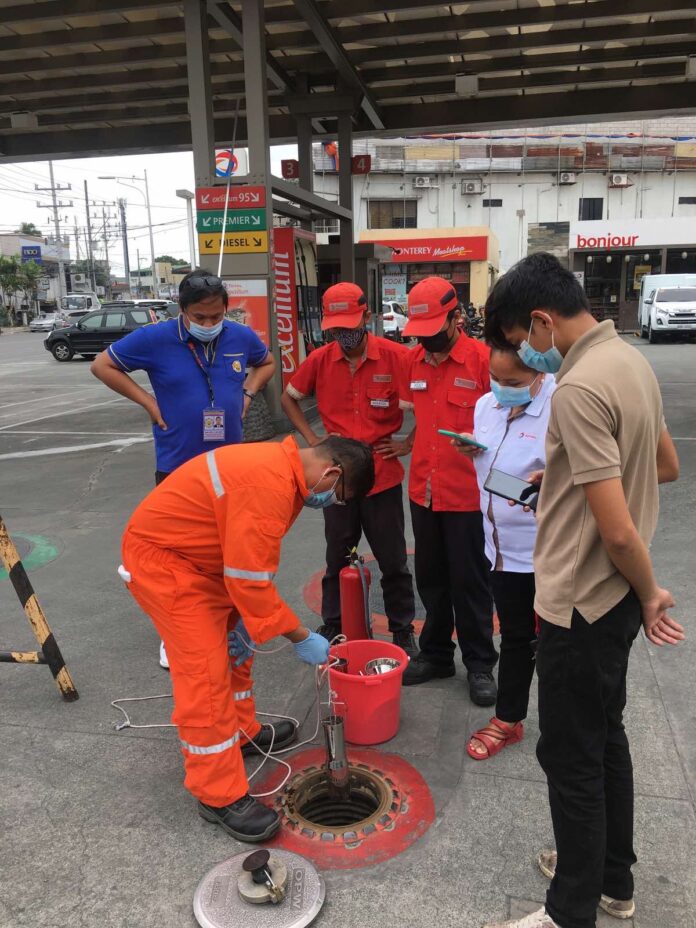-
The Bureau of Customs and Bureau of Internal Revenue will begin field testing of fuel products on April 26
-
Field testing will cover gasoline, diesel and kerosene found in warehouses, storage tanks, gas stations and other retail outlets, and in such other properties or equipment, as well as vessels, tank trucks, and similar fuel transporting vehicles
-
Random field and confirmatory testing is part of the government’s fuel marking program under the Tax Reform for Acceleration and Inclusion Law
The Bureau of Customs (BOC) and Bureau of Internal Revenue (BIR) will begin field testing activities under the government’s fuel marking program on April 26.
Field testing will cover gasoline, diesel and kerosene found in warehouses, storage tanks, gas stations and other retail outlets, and in such other properties or equipment, as well as in vessels, tank trucks, and similar fuel transporting vehicles, BOC said in a statement.
Random field and confirmatory testing is part of the government’s fuel marking program under the Tax Reform for Acceleration and Inclusion Law that took effect in 2018. Fuel marking aims to curb oil smuggling and plug revenue losses arising from the illegal importation or misdeclaration of petroleum products.
Petroleum products found without the official fuel marker or not containing the required level of official fuel marker will be slapped duties and taxes, inclusive of fines and penalties. They may also be confiscated and forfeited and may face the filing of the appropriate criminal case.
The field testing process will be done using mobile laboratory units equipped with analyzers capable of detecting the official fuel marker’s presence in any fuel sample.
The test result will be generated on-site indicating a pass or a fail result. Products with failed results will undergo confirmatory testing in a fuel testing facility. For transparency, the owner of the fuel or a representative may witness the field and confirmatory testing.
The implementation of field testing follows the transitory field testing activities started by the sister agencies last February.
During the transitory field testing, sample fuels from retail stations and tank trucks in the National Capital Region and nearby provinces were tested to determine the marker levels in the fuel supply available in the domestic market.
The activity was in line with Section 13 of Joint Circular (JC) 001.2021, signed by the Department of Finance (DOF), BOC, and BIR. The JC prescribes the guidelines for the conduct of random field and confirmatory testing under the government’s fuel marking program.
READ: Additional rules cover random testing under fuel marking program
Under JC 001.2021, a Field Inspection Unit (FIU) should be created, composed of officers from BOC and BIR deputized to conduct search, seizure and arrest functions in relation to petroleum products found to be unmarked, adulterated or diluted.
Aside from the officers of the FIU, other parties involved in the field testing include the fuel marking service provider, which currently is the joint venture of Swiss-based SICPA SA and SGS Philippines, Inc.; as well as the owner and his representative.
The owner refers to any person, whether natural or juridical who refines/manufactures/processes and/or imports/exports and stores, distributes and sells petroleum products. It may also include dealers, haulers and other entities engaged in the downstream oil industry.
Field testing should be conducted in locations where fuel is transported, sold or stored, regardless of whether the facility is open to the public or for use by a limited group or person.
A mission order should be issued to the FIU authorizing the conduct of field testing in locations identified in the field testing plan. The testing plan identifies the area for testing and the designated mobile laboratory unit, which is operated by the fuel marking service provider that conducts the random field testing.
At all times, the FIU and the fuel marking service provider must observe the appropriate protocol when conducting field testing.
BOC said the fuel marking program aims to raise revenues while curbing fuel smuggling and leveling the Philippine oil industry’s playing field. Since its implementation in September 2019 until December 2020, a total of 17.55 billion liters of fuel were marked and P171.72 billion in duties and taxes were collected under the program.





